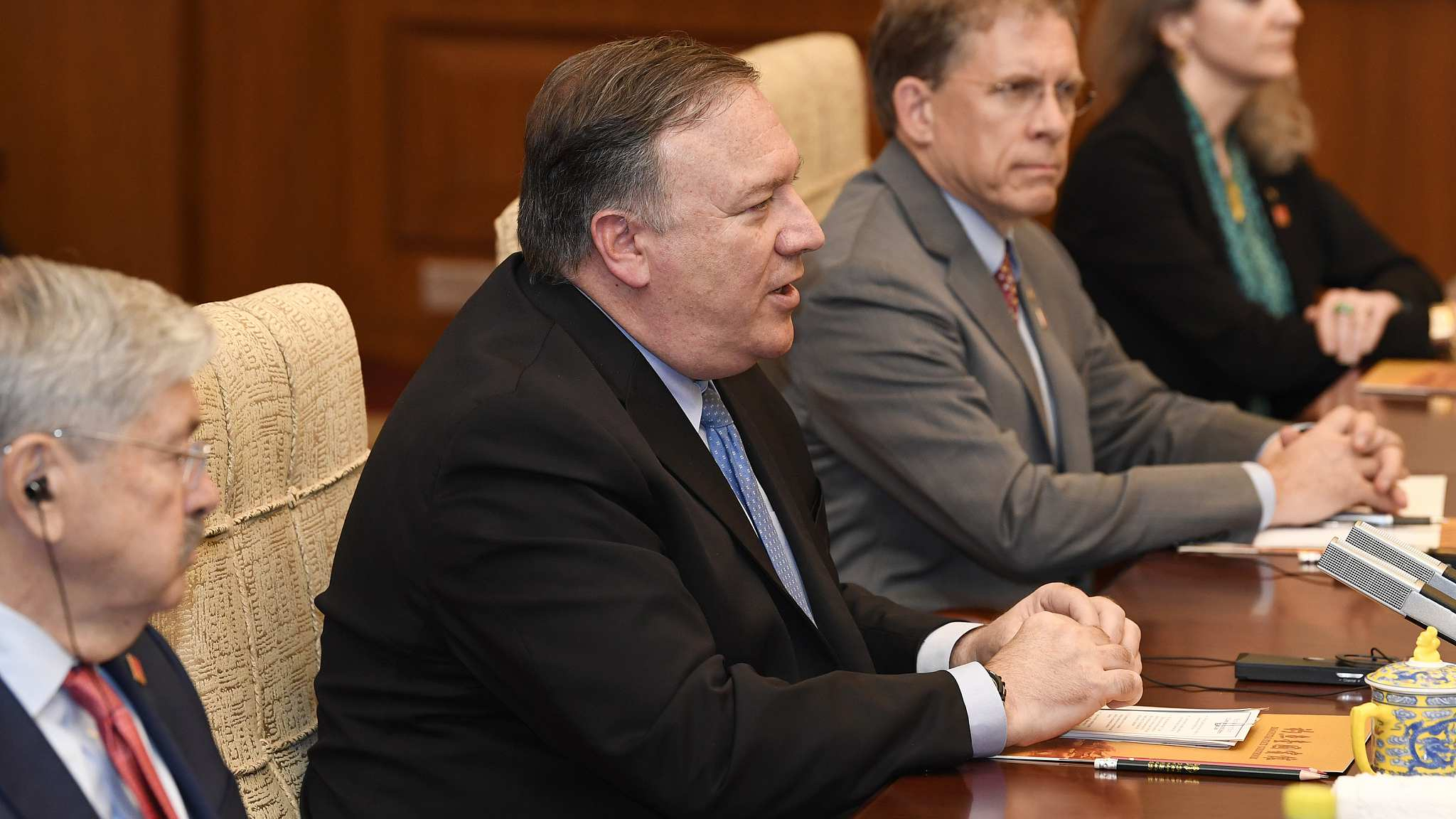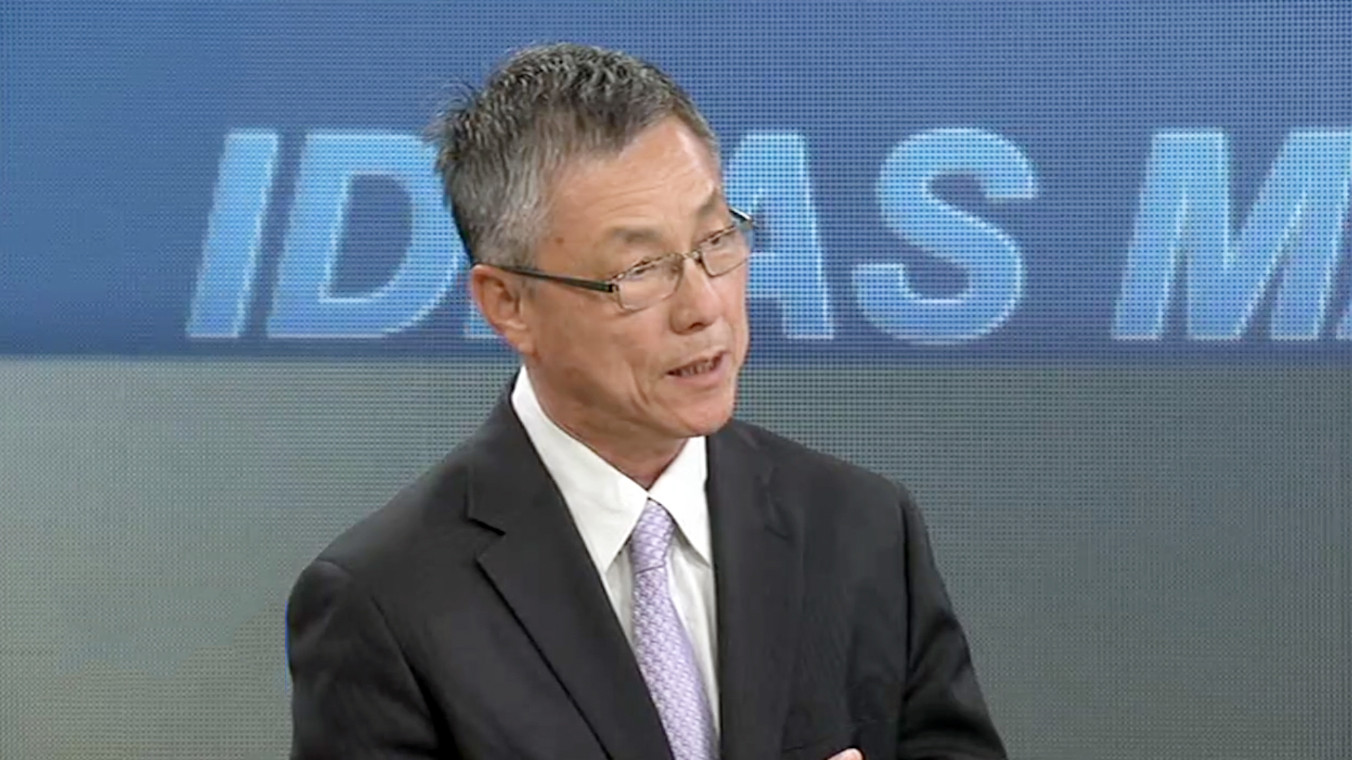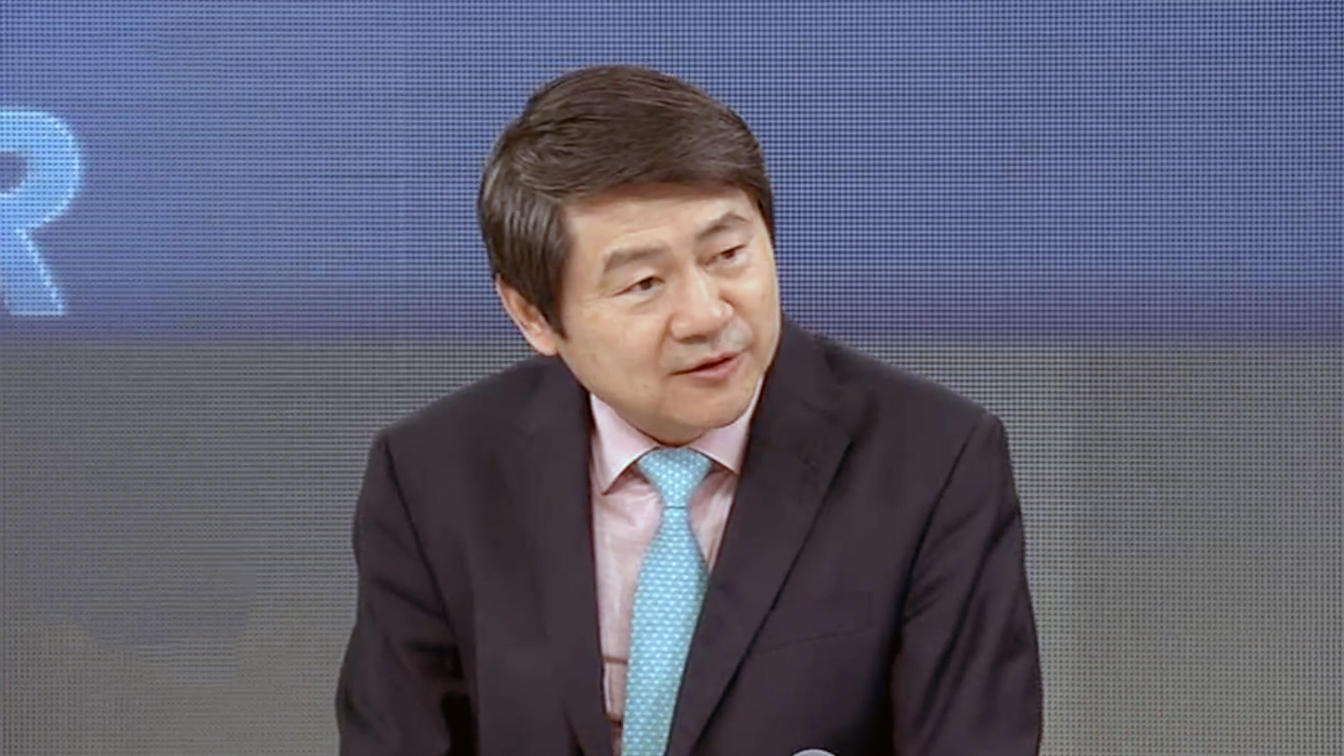
Opinions
20:46, 09-Oct-2018
Opinion: Is a new cold war brewing between China and US?
Updated
20:41, 12-Oct-2018
CGTN's Dialogue

United States Secretary of State Mike Pompeo arrived in Beijing on Monday, wrapping up his three-day Asia tour. During his meeting with Chinese Foreign Minister Wang Yi in Beijing, issues concerning Korean denuclearization and bilateral relations were discussed, including US Vice President Mike Pence's recent speech, which was filled with blistering rhetoric against China.
Since the US imposed massive tariffs on Chinese imports this year, the two countries' relations have experienced a rough patch. Recently, US President Donald Trump accused China of meddling in the US midterm elections at the UN Security Council. It was then followed by Pence's scathing speech against China and the manufacturing and defense industry report issued by the Pentagon, both of which accused China of a series of wrongdoings.
01:17

While some consider Pence's speech as another "Iron Curtain" speech, signaling the dawning of the "New Cold War" era, Senior Fellow at the China Institute of International Studies Yang Xiyu expressed the belief that Pence's speech would not necessarily lead to further deterioration of the bilateral relations. He pointed out that how the China-US relations will evolve depends on China's response, which can either lead the two sides to a "New Cold War" confrontation or a positive path for bilateral relations.
This view was echoed by Wang Huiyao, President of the Center for China and Globalization, and Richard Weitz, Director of the Center for Political-Military Analysis at the Hudson Institute.
Wang believes that if China overreacted to the speech, the tension between China and the US would further escalate, which might indeed lead to a cold war. However, fortunately, China has so far handled the issue properly, as the government responded calmly and rightfully refuted the false accusations coming from Mike Pence.
01:11

Weitz also agrees that how China responds to Pence's statement will lead the China-US relations down a particular path. "But I don't think we're on a path-dependent process yet, I still think it's very open, very fluent what we might see in the next few years, as well as beyond," commented Weitz.
Wang views Pompeo's Asia tour as a positive sign. The fact that the US administration decided to send its top diplomat to China who briefed China on his latest visit to the Democratic People's Republic Korea, discussed bilateral relations and asked for more cooperation shows that the dialogue between the two sides continues. And a cold war would not happen as long as the two sides continue the talks.
(If you want to contribute and have specific expertise, please contact us at opinions@cgtn.com.)

SITEMAP
Copyright © 2018 CGTN. Beijing ICP prepared NO.16065310-3
Copyright © 2018 CGTN. Beijing ICP prepared NO.16065310-3